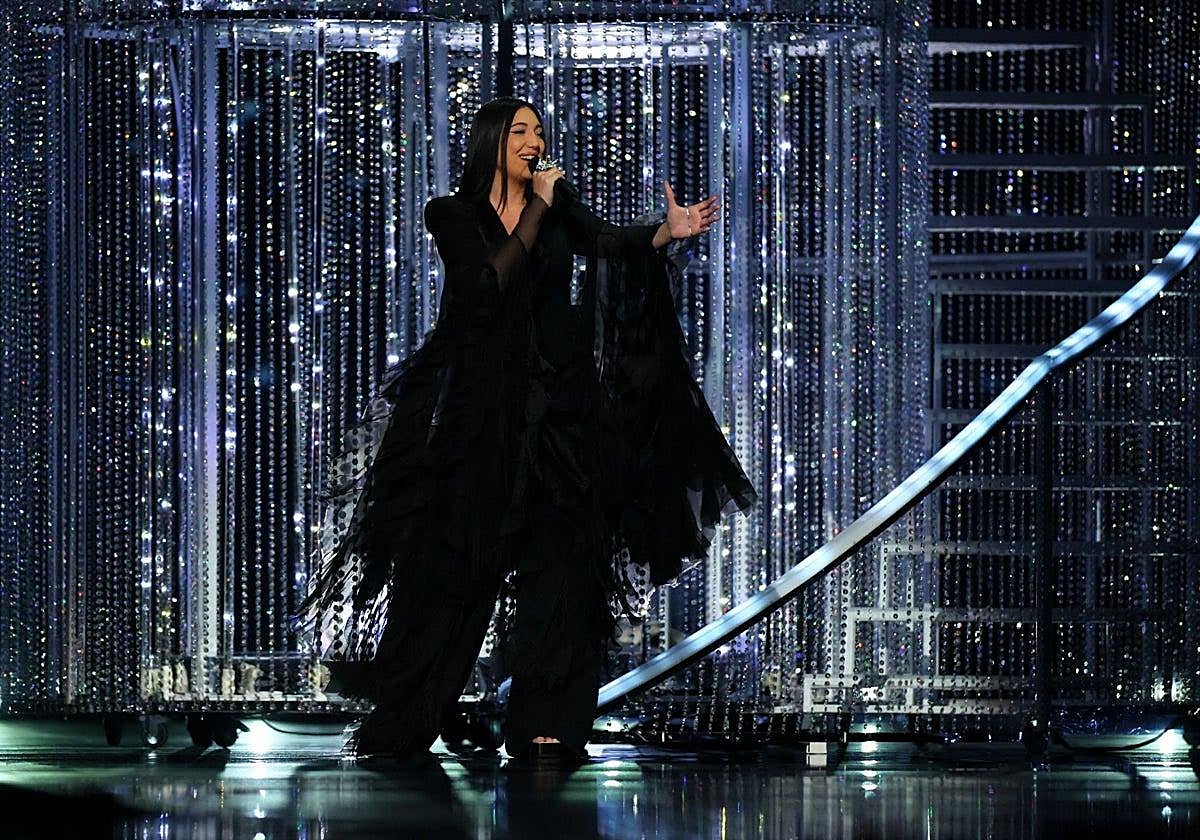Spanish broadcaster asks Eurovision to reconsider audience voting after it benefited Israel
RTVE says audience voting has been skewed by war conflicts, while Israeli minister mocks PM Sánchez for his opinions on where Spain stands in the conflict
J. Moreno
Monday, 19 May 2025, 12:46
The controversy over Israel's participation in Eurovision did not end with the contest. Spain's public broadcaster RTVE plans to ask the European Broadcasting Union (EBU) to re-assess the power of the public vote in determining "which country wins the contest". The debate is supported by other European countries.
During the Eurovision final, Israeli representative Yuval Raphael - survivor of the Hamas attack on 7 October 2023 - obtained the highest audience score (297), despite receiving only 60 points from the jury. As a result, Israel ranked second, after Austria.
RTVE's protest started a while before the contest. The broadcaster had expressed its opposition to the Israeli candidate's participation, citing Israel's atrocities in Gaza. The resistance culminated with a statement published right before the finale: "Peace and justice" for Palestine, it read.
Despite RTVE's opposition, the Spanish public voted overwhelmingly for Yuval. As a result, Israeli Minister of Diaspora Affairs Amichai Chikli took to social media to address Spanish PM Pedro Sánchez, stating that "Spaniards have spoken". According to Chikli, Spain's vote for Israel's representative is proof that the Mediterranean country supports them despite Sánchez's opinion.
According to RTVE, Eurovision's public vote system has been affected by the "war conflicts" in Gaza and Ukraine in recent years, which makes the European contest "lose its cultural essence". The Spanish delegation also requested that the Eurovision organisers disclose "how many votes each country received in Spain" - a matter that falls exclusively under the EBU's authority. RTVE pointed out that Israel's PM Benjamin Netanyahu himself boasted of having invested money in the competition last year, when the repression in Gaza was already under way. This operation benefited the performance of their representative, Eden Golan, by boosting voting.
Eurovision has two voting systems. The vote from each country's professional jury contributes 50% and the public vote accounts for the other 50%. People can vote through a phone call or a text message and also the official website or app, where each person is allowed to pay by debit card a maximum of 20 times. In recent years, it has also become possible to vote online from countries that are not participating in the festival.
Support from Europe
During this year's Eurovision, Israel once again swept the public vote. Yuval Raphael came second, with a total of 357 points. Although she only received 60 points from the professional jury, she was the public's favourite (297 votes), which allowed her to climb from 15th to second place in the final ranking.
